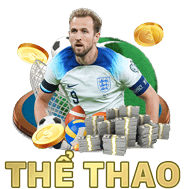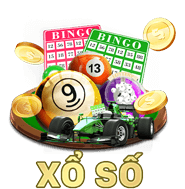
QH88 - Trang Chủ QH88.Com Chính Thức | Tặng Code 100k
QH88 là điểm đến giải trí trực tuyến uy tín, nơi hội tụ đầy đủ các dịch vụ cá cược hấp dẫn như thể thao, casino, xổ số và game bài đỉnh cao. Với định hướng phát triển minh bạch, hiện đại và an toàn tuyệt đối, nền tảng này luôn mang đến không gian giải trí chuyên nghiệp, đậm chất công nghệ. Trải qua nhiều năm hoạt động, QH88 đã khẳng định được vị thế bằng chất lượng dịch vụ vượt trội và hệ thống trò chơi không ngừng đổi mới – mang lại cảm giác hào hứng và thỏa mãn cho mọi hội viên mỗi lần đăng nhập.
⚠️ ⚠️ ⚠️ Lưu ý: Hiện nay có rất nhiều đường link giả mạo nhà cái QH88.Com, anh em hãy chắc chắn mình đã truy cập đúng vào địa chỉ chính thức, tránh tiền mất tật mang nhé!!!
- Link QH88 Đăng Nhập, đăng ký chính thức tại địa chỉ: https://dreamservers.uk.com/
1. Thông Tin Tổng Quát Về Thương Hiệu QH88
QH88 được biết đến là một trong những sân chơi Cá Cược Trực Tuyến hàng đầu tại thị trường châu Á. Nhà cái được hình thành và phát triển dựa trên công nghệ phù hợp với những tiêu chuẩn quốc tế. Ngay dưới đây là thông tin tổng quan nhất về nền tảng nổi tiếng này.

1.1. CEO QH88 – Người Đặt Nền Móng Cho Sự Phát Triển Bền Vững Của Thương Hiệu
Nhắc đến QH88, chắc hẳn ai trong giới cá cược cũng đã từng nghe qua – một thương hiệu uy tín, minh bạch và không ngừng lớn mạnh trong suốt nhiều năm qua. Nhưng bạn có bao giờ tự hỏi: Ai là người đứng sau, đặt những viên gạch đầu tiên xây dựng nên nền tảng này?
Câu trả lời chính là tôi – Hoàng Tú, CEO & Founder QH88.
Với đam mê công nghệ, tư duy chiến lược và cái nhìn nhạy bén về thị trường giải trí trực tuyến, tôi đã định hướng và phát triển QH88 từ những ngày đầu tiên chỉ là một nền tảng nhỏ, trở thành hệ sinh thái cá cược đa dạng như hiện nay – nơi quy tụ hàng loạt sảnh game quốc tế, dịch vụ thanh toán siêu tốc và hệ thống chăm sóc khách hàng 24/7.
Tôi luôn đặt tiêu chí uy tín, bảo mật và công bằng lên hàng đầu trong mọi hoạt động vận hành. Đó cũng là lý do vì sao QH88 không chỉ giữ vững niềm tin của người chơi trong nước, mà còn từng bước vươn ra thị trường quốc tế, khẳng định vị thế của một thương hiệu cá cược hàng đầu châu Á.
1.2. Lý do gì QH88 luôn được hội viên săn đón?
Thị trường cá cược ngày càng phát triển như hiện nay thì không phải ngẫu nhiên mà sân chơi QH88 Đăng Nhập luôn được anh em trong giới giải trí yêu thích. Hiện nay, nhà cái còn nằm trong top đầu thương hiệu cá cược uy tín tại thị trường châu Á. Tất cả đều nhờ vào việc nền tảng sở hữu một loạt giấy phép hoạt động kinh doanh hợp pháp từ những tổ chức danh tiếng trên thế giới. Nổi bật nhất phải kể đến đó là đơn vị PAGCOR có trụ sở chính tại Philippines, UKGC (UK Gambling Commission) hoặc MGA (Malta Gaming Authority).
Nhờ vào sự giám sát chặt chẽ của tổ chức uy tín hàng đầu trong giới cá cược nên hệ thống luôn đảm bảo xây dựng một môi trường minh bạch, tuyệt đối an toàn cho anh em. Thương hiệu cũng không ngừng cập nhật và cải tiến những tính năng mới mẻ để bạn có trải nghiệm hoàn hảo nhất. Với giao diện trực quan, tốc độ tải trang mượt mà cùng với hệ thống bảo mật tối tân là những điểm cộng tuyệt đối với hội viên.
1.3. Thời gian nhà cái có mặt trong giới cá cược là bao lâu?
Sân chơi chính thức được hình thành và ra mắt hội viên vào năm 2012. Đây là thời điểm thị trường châu Á bắt đầu xuất hiện những cơn bùng nổ mạnh mẽ trong cá cược. Nhờ vào xuất phát điểm vững chắc, mục tiêu rõ ràng và chiến lược dài hạn nên QH88 Com đã thành công tạo được vị thế riêng trong giới. Nhà cái đã trở thành một trong những thương hiệu tiên phong đem đến những giây phút cá cược an toàn, thú vị cho bet thủ.
Với khoảng thời gian dài là 12 năm phát triển, thương hiệu đã không ngừng khẳng định chất lượng sản phẩm cũng như dịch vụ của mình nhiều việc đầu tư mạnh mẽ vào hệ thống công nghệ. Toàn bộ giao diện cũng được cải tiến mới mẻ, nâng cấp hệ thống bảo mật tuyệt đối. Nhờ vào sự nỗ lực, tầm nhìn chiến lược sâu rộng đã giúp nhà cái luôn giữ vững phong độ, ngày càng nổi tiếng trên thị trường giải trí trực tuyến thế giới.
1.4. Mục tiêu và sứ mệnh QH88 đặt ra
Ngay từ những ngày đầu thành lập, nhà cái đã luôn khẳng định mục tiêu và sứ mệnh của mình là đem đến dịch vụ tối ưu, sản phẩm chất lượng nhất cho hội viên. Bet thủ có thể hoàn toàn an tâm và tin tưởng khi tham gia giải trí tại sân chơi. Ngoài ra, hệ thống cũng nỗ lực cải tiến tính năng mới, cập nhật xu thế mỗi ngày để phục vụ mọi nhu cầu cá cược của anh em.
1.5. QH88 hoạt động với phương châm ” Vui Lòng Khách Đến, Vừa Lòng Khách Đi”
- Sự hài lòng của khách hàng chính là động lực để QH88 không ngừng phát triển.
- Chúng tôi cam kết nâng cao chất lượng dịch vụ mỗi ngày để mang đến trải nghiệm tốt nhất.
- Mọi thắc mắc hay góp ý sẽ luôn được đội ngũ hỗ trợ khách hàng thân thiện của QH88 tiếp nhận và xử lý nhanh chóng, 24/7.
2. Lý Do Nên Chọn QH88 Thay Vì Thương Hiệu Khác Là Gì?
Hiện nay, trong giới giải trí cá cược xuất hiện vô vàn nhà cái nổi tiếng như: Sbobet, Kubet, 188bet, 789bet, hi88, fb88,…. Tuy nhiên, số lượng hội viên yêu thích và lựa chọn trải nghiệm tại QH88 Nhà Cái Uy Tín vẫn ngày càng tăng cao, chưa bao giờ có dấu hiệu giảm đi.
Dẫn chúng cụ thể tại đây số liệu lượt tìm kiếm (Seach Volume) từ khóa QH88 được đo từ công cụ Ahrefs tính đến thời điểm tháng 6/2025 là 450k/tháng. Tăng trưởng gấp 2 lần so với thời điểm cùng kỳ tháng 6/2024.
2.1. Sân chơi luôn đảm bảo được uy tín
Khi hội viên tham gia giải trí trực tuyến thì điều quan tâm nhất đó là thương hiệu có thật sự uy tín và minh bạch trong suốt quá trình hay không. Hiểu được điều này nên QH88 ngay từ những ngày đầu thiết lập đã đảm bảo trung thực chính là điều kiện tiên quyết nhất để phát triển thành một sân chơi lớn mạnh.
Với mục tiêu rõ ràng nên trong suốt nhiều năm qua nhà cái vẫn luôn nỗ lực để xây dựng được hình ảnh uy tín, minh bạch đối với hội viên và đối tác chiến lược. Nhà cái luôn cam kết toàn bộ các siêu phẩm giải trí đều được giám sát chặt chẽ, không để xảy ra tình trạng gian lận hoặc can thiệp vào kết quả.
2.2. Cung cấp kho game giải trí đỉnh cao, siêu vip
Ngoài việc đem đến dịch vụ chất lượng thì hệ thống còn đảm bảo cung cấp cho người chơi vô vàn tựa Game Giải Trí Hấp Dẫn. Nhà cái hợp tác với những nhà phát hành game hàng đầu để đảm bảo đem đến những siêu phẩm giải trí mới lạ. Anh em sẽ được trải nghiệm trò chơi nổi bật từ những sảnh game nổi tiếng như thể thao, casino, bắn cá, nổ hũ,…
2.3. Sự kiện khuyến mãi vip mỗi ngày
Để tri ân người chơi tin tưởng, sử dụng dịch vụ và sản phẩm nhà cái đã thiết lập đa dạng chương trình ưu đãi cực hot. Khuyến mãi được áp dụng cho mọi đối tượng, bạn chỉ cần sở hữu tài khoản hợp lệ là có thể tham gia và nhận thưởng dễ dàng.
2.4. Đảm bảo tham gia cá cược an toàn tuyệt đối
Vấn đề bảo mật luôn là điều mà hội viên quan tâm nhiều nhất khi tham gia giải trí cá cược trực tuyến. Hiểu được điều này nên QH88 Nhà Cái Trực Tuyến thiết lập hệ thống bảo mật với công nghệ, toàn bộ chính sách đều đảm bảo đáp ứng theo quy chuẩn quốc tế. thông tin cá nhân của anh em sẽ được mã hóa và bảo vệ an toàn 100%. Nếu xảy ra bất kỳ tình trạng rò rỉ hoặc xâm phạm trái phép thì thương hiệu sẽ chịu hoàn toàn trách nhiệm.
2.5. Đội ngũ nhân viên hỗ trợ 24/7, chuyên nghiệp
Trong quá trình tham gia giải trí cá cược tại QH88 bạn sẽ được giải đáp toàn bộ thắc mắc trong khoảng thời gian ngắn. Với đội ngũ chuyên viên được sàng lọc kỹ càng, trải qua quá trình đào tạo nghiêm túc đảm bảo mọi khúc mắc sẽ có lời giải đáp nhanh chóng. với hệ thống liên hệ đa dạng phương thức, sự chuyên nghiệp và tận tâm luôn là yếu tố hàng đầu đảm bảo mọi thắc mắc của bạn sẽ được ghi nhận và đưa ra hướng giải quyết cụ thể.
3. Hệ Thống Sản Phẩm QH88 Có Gì Nổi Bật?
Game QH88 Cung cấp dịch vụ chất lượng chỉ là một phần để giúp tối ưu trải nghiệm của hội viên. Tại đây còn đem đến kho sản phẩm mới mẻ, đặc sắc.

3.1. Xổ số giúp nhận thưởng khủng mỗi ngày
Nếu như người chơi muốn thử vận may, thay đổi số phận thì sảnh chơi xổ số là lựa chọn hoàn hảo nhất. Tại đây, bạn sẽ có cơ hội trải nghiệm hình thức quay thưởng nổi bật như truyền thống, siêu tốc, keno. Mỗi loại hình đều đi kèm với phần thưởng giá trị hấp dẫn khác nhau.
Hệ thống giám sát chặt chẽ luôn đảm bảo rằng quá trình tham gia giải trí cá cược diễn ra công bằng, minh bạch. Cam đoan không để xảy ra bất kỳ tình trạng gian lận hoặc can thiệp vào kết quả quay thưởng.
3.2. Giải trí thể thao đa dạng kèo cược
Sảnh chơi thể thao vẫn luôn là lựa chọn hoàn hảo tại nhà cái. Hội viên sẽ được trải nghiệm những bộ môn nổi tiếng như bóng đá, bóng rổ, quần vợt, đua ngựa, cầu lông, tennis,… Đi kèm với siêu phẩm giải trí này là vô vàn kèo cược hấp dẫn mỗi ngày. Với sự đa dạng hóa lựa chọn đảm bảo sẽ giúp người chơi tối ưu hóa chiến thắng dễ dàng.
📊 Danh sách sảnh thể thao nổi bật tại QH88:
| Sảnh Thể Thao | Tỷ Lệ Cược Trung Bình | Trận Đấu Mỗi Ngày | Tốc Độ Thanh Toán | Đánh Giá Người Chơi (★/5) |
| SABA Sports | 1.95 | 1,200+ | 1–2 phút | 4.6 |
| CMD | 1.90 | 1,000+ | 2–3 phút | 4.4 |
| Panda Sports | 1.92 | 900+ | 2 phút | 4.5 |
3.3. Casino QH88 chưa bao giờ hết hot
Ngay từ khi thành lập nhà cái đã thiết lập ra sảnh chơi casino vô cùng hấp dẫn. Tại đây, hình ảnh được đảm bảo đầu tư sắc nét cùng với hiệu ứng sống động giúp chinh phục trái tim hàng triệu hội viên. Bạn sẽ có cơ hội trải nghiệm tựa game nổi tiếng như baccarat, luckywin, roulette, poker với tỷ lệ trả thưởng siêu cao. Ngoài ra, còn có cơ hội trò chuyện trực tiếp với dealer nóng bỏng, xinh đẹp.
🔥 Danh sách nhà cung cấp và trò chơi tiêu biểu tại QH88:
| Nhà Cung Cấp | Trò Chơi Nổi Bật | Số Bàn Trực Tuyến | Tỷ Lệ Trả Thưởng (%) | Người Chơi Hoạt Động |
| Sexy AWC | Baccarat, Roulette QH88 | 30 | 98.5% | 15,000 |
| DreamGaming (DG) | Baccarat, Xóc Đĩa | 25 | 97.8% | 12,500 |
| WM Casino | Baccarat, Sicbo | 20 | 98.2% | 10,800 |
| Evolution | Roulette QH88, Poker | 35 | 99.0% | 18,200 |
| Asia Gaming | Baccarat, Bull Bull | 28 | 98.0% | 11,700 |
| Pretty Gaming | Baccarat, Dragon Tiger | 22 | 97.5% | 9,600 |
| Via Casino | Baccarat, Poker | 18 | 97.9% | 8,300 |
| BBINSoft | Baccarat, Sicbo | 24 | 98.1% | 10,200 |
| AllBet (AB) | Baccarat, Roulette QH88 | 26 | 98.3% | 11,900 |
| Ezugi | Blackjack, Baccarat | 21 | 97.6% | 9,800 |
3.4. Bắn cá hấp dẫn nhất 2025
Sảnh chơi bắn cá đem đến không gian giải trí bí ẩn tại thế giới đại dương bao la đầy rẫy nguy hiểm với đa dạng sinh vật biển. Những trò chơi tại sảnh đều được thiết kế với hình ảnh 3D mới lạ, hiệu ứng chuyển động chân thật giúp bạn có những trải nghiệm lý thú, hấp dẫn.
🎯 Danh sách trò chơi bắn cá nổi bật tại QH88:
| STT | Tên Trò Chơi | Nhà Phát Hành | Tỷ Lệ Trả Thưởng (%) | Mức Cược Tối Thiểu | Mức Cược Tối Đa | Đánh Giá (⭐/5) |
| 1 | Jackpot Bắn Cá | JILI | 96.5% | 1,000 VNĐ | 10,000,000 VNĐ | 4.6 |
| 2 | Bắn Cá Vương Giả | JILI | 97.0% | 500 VNĐ | 5,000,000 VNĐ | 4.5 |
| 3 | Nhà Tư Bản Khủng | JILI | 95.8% | 2,000 VNĐ | 8,000,000 VNĐ | 4.4 |
| 4 | Dàn Sao Đánh Cá | JILI | 97.2% | 1,500 VNĐ | 7,000,000 VNĐ | 4.7 |
| 5 | Đoạt Bảo Truyền Kỳ | JILI | 96.0% | 1,000 VNĐ | 9,000,000 VNĐ | 4.5 |
3.5. Đá gà kịch tính trong từng trận đấu
Nếu hội viên muốn tham gia giải trí cá cược với những giây phút kịch tính thì đá gà là lựa chọn hoàn hảo. Tại đây, bạn sẽ có cơ hội tham gia vào những trận đấu nổi tiếng hàng đầu thế giới cùng với thời gian đặt cược linh hoạt. Hệ thống luôn cung cấp lịch thi đấu rõ ràng để đảm bảo anh em tham gia giải trí mọi lúc mọi nơi dễ dàng.
Nhà cái còn đảm bảo đem đến đa dạng các hình thức khác nhau như cựa sắt, cựa dao, truyền thống hấp dẫn để bet thủ đa dạng hóa lựa chọn. Với hình ảnh sắc nét, hệ thống phát sóng đẳng cấp đảm bảo bạn sẽ không bỏ lỡ bất kỳ cú đá hoàn hảo nào của chiến kê.
4. Điểm Danh Top Khuyến Mãi Độc Quyền Tại QH88: Dành Cho Thành Viên Mới Và Cũ
QH88 hiện đang triển khai hàng loạt chương trình khuyến mãi nổi bật, đáp ứng mọi đối tượng thành viên. Đặc biệt, người chơi chuyển từ nhà cái khác sang QH88 sẽ được nhận ngay gói thưởng lên đến 21 triệu đồng, như một lời chào đón đặc biệt từ hệ thống. Bên cạnh đó, khách hàng thân thiết cũng sẽ được tri ân định kỳ với loạt ưu đãi hoàn trả, tặng thưởng VIP và nhiều quà tặng giá trị khác. Đây là cơ hội lý tưởng để người chơi vừa đổi gió, vừa nhận thưởng cực lớn khi gắn bó cùng QH88.
4.1. Review Khuyến Mãi Thay Đổi Nhà Cái Đến Với QH88
Đối Tượng Tham Gia: Tất cả thành viên của QH88
Nội Dung Hoạt Động: Chỉ cần thành viên đã từng tham gia tại nhà cái khác, quay lại với QH88 chúng tôi sẽ dành tặng bạn phần quà gặp mặt bất ngờ đầy hấp dẫn lên đến 21.000.000 VND
Chuyển Đổi Vip: Bạn chỉ cần cung cấp thông tin nạp rút tại nhà cái cũ, và liên hệ CSKH để chuyển đổi cấp bậc VIP tại QH88 mà không cần tích lũy cược. Ngoài ra bạn còn nhận thêm hoàn trả thăng cấp tuần và tháng vô hạn.
Ví Dụ: Thành viên Nguyễn Văn An từ nhà cái cũ có tổng cược 42.000.000 VND sẽ được chuyển thành VIP 20 tại QH88 và nhận được phần thưởng 2.350.000 VND khi nạp tương ứng số tiền trên.
4.2. Tri ân khách hàng cũ đã gắn bó đồng hành lâu năm
Bắt đầu từ hôm nay, tất cả các thành viên đã đăng ký tài khoản tại QH88, mà không đăng nhập tài khoản tham gia cược trong vòng 10 ngày. Khi trở lại với chúng tôi và có khoản nạp tiền đầu tiên ngay khi quay lại thì sẽ có cơ hội nhận ngay các phần thưởng sau:
| LẦN NẠP ĐẦU TIÊN SAU KHI TRỞ LẠI | TIỀN THƯỞNG | ĐIỀU KIỆN |
| 300.000 | 18.888 | X1 |
| 500.000 | 38.888 | X1 |
| 1.000.000 | 88.888 | X1 |
| 3.000.000 | 138.888 | X1 |
| 5.000.000 | 188.888 | X1 |
| 10.000.000 | 388.888 | X1 |
| 30.000.000 | 588.888 | X1 |
| 50.000.000 | 888.888 | X1 |
| 100.000.000 | 1.888.888 | X1 |
| 500.000.000 | 5.888.888 | X1 |
4.3. Tổng Hợp Các Lưu Ý Hội Viên Cần Nắm Khi Tham Gia Ưu Đãi
Điều Kiện Và Điều Khoản Tham Gia
- Một địa chỉ IP chỉ được đăng ký một thành viên duy nhất. Nếu trên cùng địa chỉ IP đăng ký quá một thành viên hoặc cùng máy tính, cùng chung số tài khoản ngân hàng hoặc chung số điện thoại, công ty có quyền huỷ hoặc thu hồi tài khoản, quyền trúng thưởng của khách hàng và đóng tài khoản thành viên.
- Khi đăng ký tài khoản, thành viên nhất định phải điền đầy đủ thông tin Họ Tên, Số Điện Thoại liên lạc. Nếu thông tin bị sai lệch hoặc không đúng như thông tin đã đăng ký, công ty có quyền huỷ bỏ quyền nhận giải của thành viên trúng thưởng.
- Bất cứ tập thể hay cá nhân nào có hành vi gian lận hoặc lạm dụng để giành thắng lợi, QH88 có quyền huỷ bỏ tài khoản hiện tại của thành viên đó.
- QH88 có toàn quyền thực hiện, sửa đổi và chấm dứt hoạt động mà không cần thông báo.
- Tất cả các hoạt động được áp dụng dựa trên Luật Khuyến Mãi của QH88.
5. Các Bước Đăng Ký Tài Khoản Tại QH88 Như Thế Nào?
Để tiến hành tạo tài khoản thành công tại sân chơi thì hội viên phải đảm bảo nắm rõ được những bước cụ thể sau đây:

- Bước 1: Anh em bắt buộc phải truy cập vào đúng trang chủ chính thức của Trang Chủ QH88. Đây là bước quan trọng vì nếu thao tác sai có thể dẫn đến việc bị đánh cắp dữ liệu, rò rỉ thông tin cá nhân. —-> Link Đăng ký tài khoản chính thống tại địa chỉ: https://dreamservers.uk.com/
- Bước 2: Tiếp theo tại màn hình chính hãy nhấn chọn vào mục đăng ký. Khi này, hệ thống sẽ ngay lập tức yêu cầu bạn phải hoàn thiện các thông tin quan trọng như: tên đăng nhập, mật khẩu, nhập lại mật khẩu, số điện thoại, gmail. Bet thủ cần cam kết cung cấp đầy đủ những thông tin theo yêu cầu và đảm bảo toàn bộ dữ liệu này đều là chính chủ.
- Bước 3: Sau khi đã điền chính xác những thông tin quan trọng thì bạn cần kiểm tra lại thật kỹ. Tiếp theo phải đọc từng quy định mà nhà cái đưa ra. Nếu nhận thấy bản thân đáp ứng được theo những yêu cầu này thì chọn vào ô đồng ý cam kết thực hiện và đã đủ từ 18 tuổi.
- Bước 4: Cuối cùng, sân chơi sẽ cung cấp cho bạn mã thông qua qua số điện thoại. Cần đảm bảo nhập chính xác mã này để quá trình xác minh được hoàn tất.
Tham Khảo Thêm: Đăng Ký QH88 – Hướng Dẫn Thao Tác Đăng Ký Hội Viên
6. Các Câu Hỏi Thường Gặp Khi Chơi Tại QH88 Là Gì?
Để giải đáp thắc mắc căn bản của người chơi trong quá trình trải nghiệm dịch vụ và sản phẩm tại QH88 Cấp Nhà Cái thì hệ thống đã tổng hợp câu hỏi cụ thể dưới đây.
6.1. QH88 liệu có thật sự uy tín?
Về độ uy tín của nhà cái thì bạn sẽ không cần phải lo lắng. Sân chơi hoạt động dưới sự giám sát chặt chẽ của những tổ chức uy tín hàng đầu thế giới. Để được cấp phép hoạt động thì nhà cái đã phải nỗ lực, đáp ứng được đầy đủ những tiêu chí rất cao mà họ đưa ra. Sau đó còn phải cố gắng cải tiến dịch vụ để duy trì các loại giấy tờ này đến thời điểm hiện tại. Vì vậy, bạn có thể hoàn toàn an tâm khi tham gia mà không cần phải lo lắng về độ uy tín.
6.2. Hiện nay QH88 hỗ trợ phương thức thanh toán nào?
Để giúp hội viên tối ưu quá trình thanh toán thì nhà cái cho phép bạn được thực hiện thông qua thẻ ngân hàng, ví điện tử, thẻ cào hoặc tiền ảo. Mỗi phương thức đều sẽ có những ưu và nhược điểm riêng vì vậy cần phải tìm hiểu thật kỹ trước khi thao tác để tránh xảy ra sai lầm.
6.3. Quá trình thanh toán nạp rút diễn ra bao lâu?
Hiện nay, người chơi có thể tiến hành nạp tiền hoặc rút tiền chỉ trong khoảng 3-5 phút. Toàn bộ giao dịch đều được xử lý một cách tự động, chỉ cần đáp ứng đúng theo yêu cầu của nhà cái là sẽ hoàn tất nhanh chóng.
6.4. Đăng ký tài khoản QH88 có phải bỏ ra chi phí không?
Khi bạn tiến hành đăng ký tài khoản để trải nghiệm dịch vụ tại hệ thống thì không cần bỏ ra bất kỳ khoản chi phí nào. Đối với những trường hợp bị yêu cầu trả phí thì đảm bảo đó là các website giả mạo, cần dừng truy cập để tránh bị lộ thông tin cá nhân.
7. Kết Luận: QH88Gs.com – Địa Chỉ Cá Cược Trực Tuyến Uy Tín Hàng Đầu
QH88gs.com là nhà cái uy tín hàng đầu trong giới cá cược mà bạn không nên bỏ lỡ. Với mục tiêu chiến lược rõ ràng, hệ thống công nghệ hiện đại, dịch vụ chất lượng và sản phẩm đẳng cấp cam kết sẽ đem đến trải nghiệm mới lạ cho bạn.
Cẩm Nang Casino
Cẩm Nang Thể Thao
QH88 luôn khuyến khích người chơi chủ động tìm hiểu kỹ lưỡng về các chính sách hoạt động, điều khoản sử dụng và quy định bảo mật trước khi bắt đầu trải nghiệm. Toàn bộ thông tin liên quan đều được công khai minh bạch và dễ dàng tra cứu tại các chuyên mục riêng trên hệ thống.




















